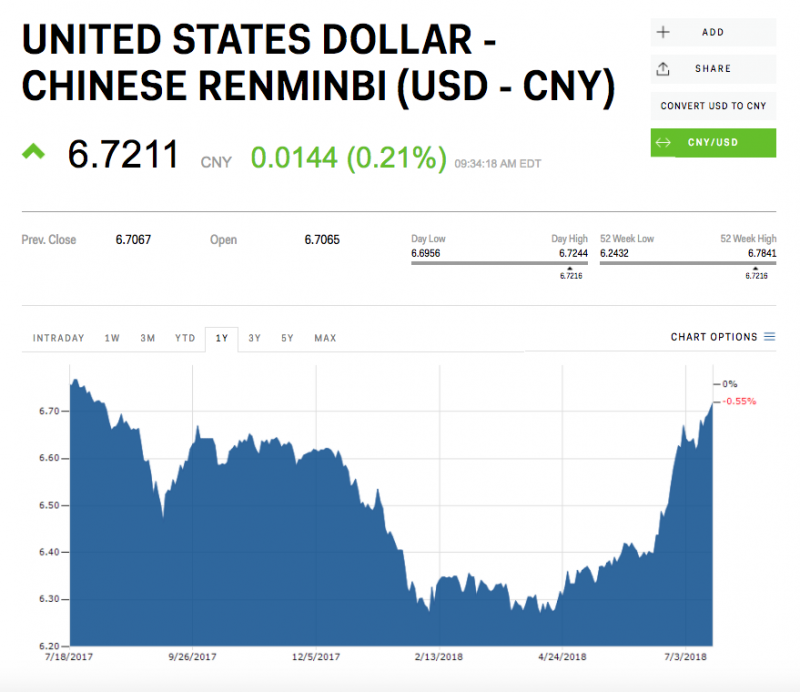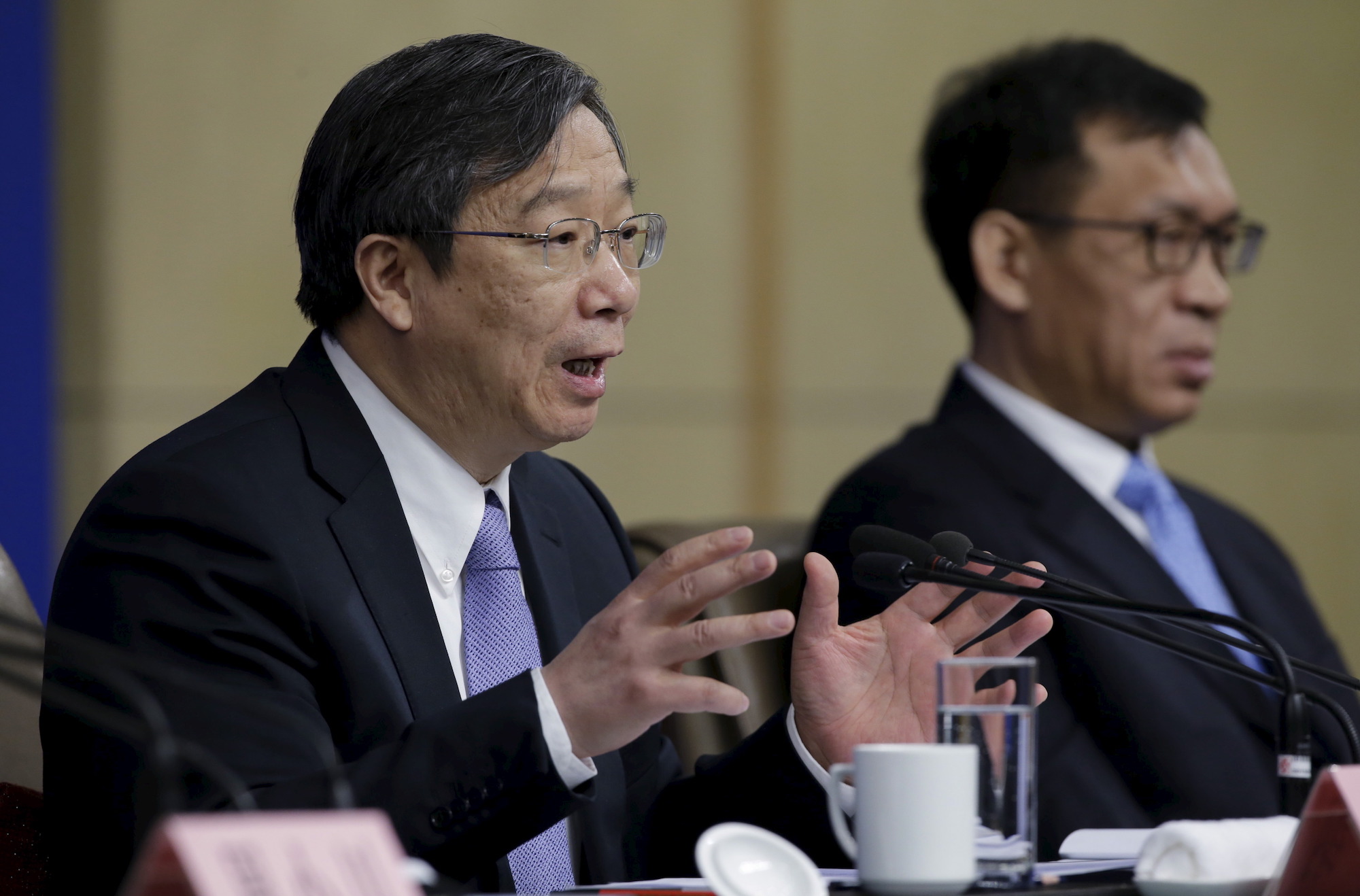- The Chinese yuan fell to its lowest level versus the greenback in more than a year Wednesday.
- The depreciation comes amid a dollar rally and trade tensions between the US and China.
- Follow the Chinese yuan in real time here.
China’s currency fell Wednesday to its lowest level against the dollar in more than a year amid a dollar rally and an escalating trade fight with the US.
The yuan shed as much as 0.3% to 6.7244 versus the greenback, which has been holding close to one-year highs on the US dollar index.
Federal Reserve Chair Jerome Powell gave an upbeat testimony before Congress a day before, saying the economy is growing “considerably stronger” and reaffirming the central bank will continue on a path of “gradually” raising its benchmark interest rate.
While some of the yuan’s depreciation is the result of a greenback rally, it has also raised questions about whether officials could also use a weakening yuan to boost exports.
Pimco emerging markets portfolio manager Isaac Meng wrote in a blog post the yuan's weakening "may help offset the impact of U.S. tariffs." A weaker currency tends to boost exports.
The yuan has plummeted more than 7% agains the dollar since March, when the Trump announced plans to penalize China for what officials found to be unfair trade practices.
The US and China have slapped tariffs on one another that target about $34 billion of products each. Trump has threatened to impose additional tariffs on nearly all Chinese imports to the US, a move that Beijing can't match in-kind because it does not import enough American goods.
Chinese officials have said they will not use yuan depreciation as part of a trade battle with the US.But there is also evidence the central bank has "tolerated the depreciation beyond its own stated exchange rate policy," according to Li-Gang Liu, Citigroup's top China economist.
The People's Bank of China cut its reserve requirement ratio - or the amount of money commercial banks have to store - a week later for some institutions by 50 basis points. The move was expected to release $108 billion in liquidity.
"Indeed, the central bank has shown willingness to tolerate higher volatility and to let the currency act as a shock absorber - as long as the moves are driven by fundamentals and there's no big spillover to financial stability," Meng wrote.
The yuan is down 3.35% versus the dollar this year.


